IELTS Reading Tips for Band 9: Proven Strategies to Achieve the Highest Score
Getting a Band 9 in the IELTS Reading section may seem daunting, but with the right approach it is entirely achievable even for non-native English speakers. Remember, the goal of the test is to assess your understanding of written English, not just your vocabulary. As one study guide notes, “even if you don’t know some words… you can guess their meaning and still get band 9”. For example, Edify points out that each test has “three passages in the Reading section” with about 40 questions total. You’ll answer all of these in 60 minutes. The reading section uses 11 question types (multiple choice, matching headings, sentence completion, table/diagram completion, True/False/Not Given, etc.), so the same smart tactics apply to both the Academic and General versions of IELTS.
1. Skim and Scan Effectively
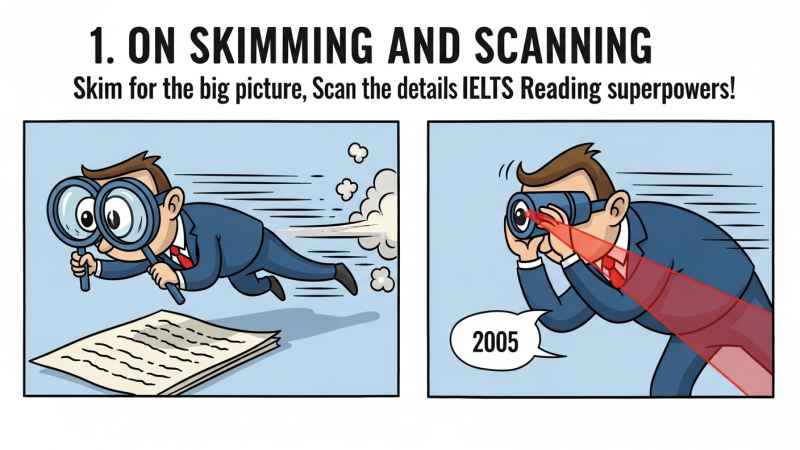
Skimming and scanning are your main tools in Band-9 reading. Skimming means reading very quickly to get the general idea of a passage, while scanning means looking for specific details (names, dates, numbers, or unique terms). Many IELTS prep resources emphasize this: “Skimming involves speed reading the passage to get a general understanding of the main ideas, while scanning involves looking for specific information”. In practice:
- Skim first: Read the title, introduction, and the first and last sentences of each paragraph. This gives you the gist without wasting time on every word.
- Scan for answers: When you know what the question is asking (see Tip 3), look in the text for the key word or phrase from the question instead of reading everything.
For example, if a question asks about an experiment in 2005, just search (scan) the passage for “2005.” Using this strategy saves precious minutes and lets you focus only on relevant sentences. Edify’s tips remind us that practicing skimming and scanning repeatedly will improve your speed and accuracy.
2. Manage Your Time Wisely
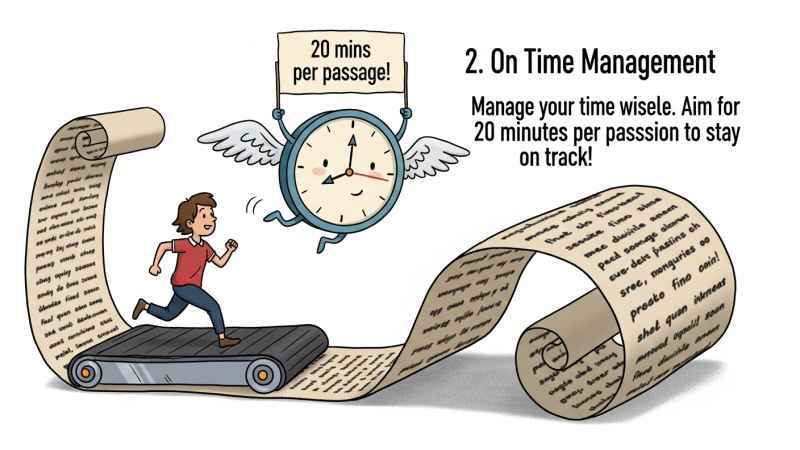
You have only 60 minutes to read three passages and answer 40 questions. That’s roughly 20 minutes per passage. Effective time management is crucial. Edify advises candidates to “allocate a specific amount of time for each passage and stick to it”. Some tactics to stay on track:
- Use a watch or timer (as shown above) to monitor your pace. Many candidates practice with a real watch so they don’t get lost in the exam booklet.
- Don’t waste time on a single question. If you’re stuck after about 1–2 minutes, move on and come back if you have time.
- Track question numbers. For example, if Section 1 has 14 questions, make sure by 15–16 minutes you’ve answered (or guessed) questions 1–14, then move on to Section 2.
Remember the official IELTS advice: “There are three sections… you should aim to spend no more than 20 minutes on each section”. Build this timing into your practice tests so on exam day your pacing is automatic.
IELTS Writing Band Descriptors Explained – How to Understand the Scoring Criteria
3. Read the Questions First
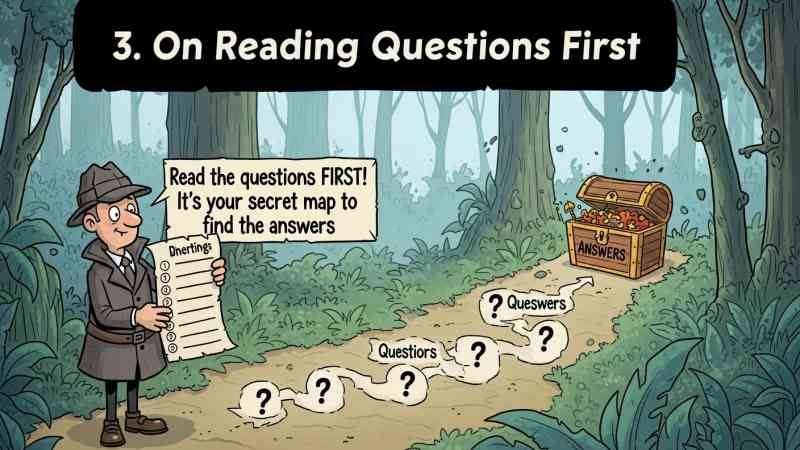
Always read the questions before the passage. This tells you exactly what information to hunt for when you skim and scan. For instance, if Question 5 asks, “Which company did John establish?”, you’ll already know to scan the passage for a person named John and any company names. The IELTS preparation guidelines strongly recommend this: “Read the questions before you read the text”.
This approach narrows your focus. When skimming the text initially, keep the question topics in mind so you notice relevant paragraphs. After skimming, use scanning to find the answer quickly. Note: Some students prefer reading the passage once fully to absorb context; that’s fine too. As Edify points out, reading the questions first helps you “focus on the relevant information”. (In practice, test both methods – reading questions first versus passage first – to see what yields better results for you.)
IELTS Writing Band Descriptors Explained (Task 2 Criteria)
How to Prepare for IELTS at Home – A Complete Guide for Beginners
4. Underline and Highlight Keywords

When scanning, mark keywords from the questions in the passage. IELTS questions often hinge on facts: specific names, dates, figures, or technical terms. As the IELTS-up guide explains, “It’s a very good idea to underline those key words while reading, so you could find the answers in the text more easily.”
For example, if a question says, “At what age did Maria move to Canada?”, underline “age” and “Canada” in the passage. Then scan the passage for those terms. In the image above, the student underlines likely answer words directly on the test paper as they go, making it faster to jump to the right sentence.
Be sure to underline the words as written in the passage. Sometimes the question’s keywords appear in a slightly different form (synonyms or plural vs. singular). Even so, marking part of the keyword or root still guides you. Use your pencil liberally – you are allowed to annotate the question paper – and be bold: it can save you significant time.
5. Pay Attention to Details and Formatting
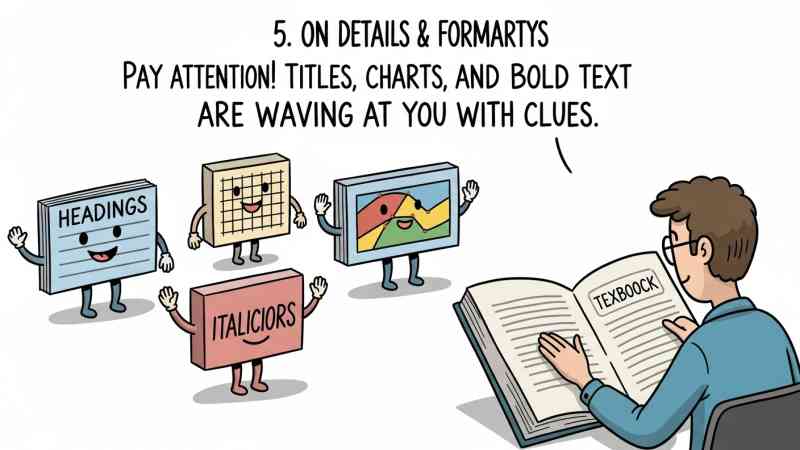
IELTS passages often include clues in their formatting. Pay special attention to titles, headings, italics, bold text, figures, or tables. These elements usually highlight important information. As one guide points out, “Any special features such as capital letters, underlining, italics, figures, graphs and tables are likely to matter.”
For example, a word in italics might introduce a technical term, or a heading might suggest the paragraph’s theme. If there is a chart or diagram, questions might ask you to complete or interpret it. Edify lists “diagram or flowchart completion” and “table completion” as common question types, reminding us to read captions and labels carefully. In the image above, a student highlights the word “Leadership” – imagine that as a title or bold term in the passage. By noting such emphasis in the text, you’ll catch question targets that others might miss.
Always glance at the whole page. If the passage has a table, figure, or flowchart, read its legend and related text. Section headings can guide you to key topics. These details often connect directly to the questions that follow. Treat charts and formatted text as part of the passage’s clues, not distractions.
6. Check Spelling and Grammar in Your Answers
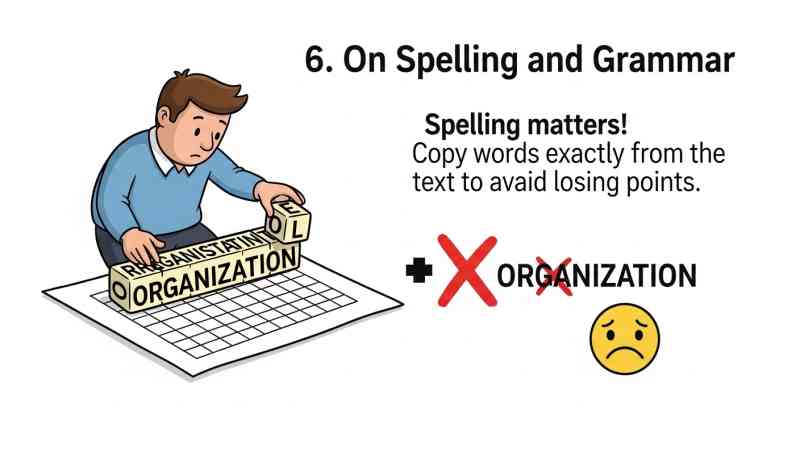
Accuracy matters: in IELTS Reading, a minor spelling mistake can cost you a point. The instructions explicitly warn that “You will get zero points for the answer if it’s spelled incorrectly.” For example, if the passage uses the British spelling organisation, writing organization will lose the mark.
To avoid this pitfall:
- Write answers exactly as given in the text (unless instructions say otherwise, which is rare).
- Double-check plural vs. singular forms. If the blank requires “purpose,” don’t write “purposes.”
- If you’re taking paper-based IELTS, use any extra time to proofread your answer sheet carefully. On computer-based tests, leave a minute or two at the end to review your entries.
Consider spelling and form as part of reading accuracy. A carefully spelled answer shows you read closely enough to copy correctly.
7. Keep Answers in Order of the Text
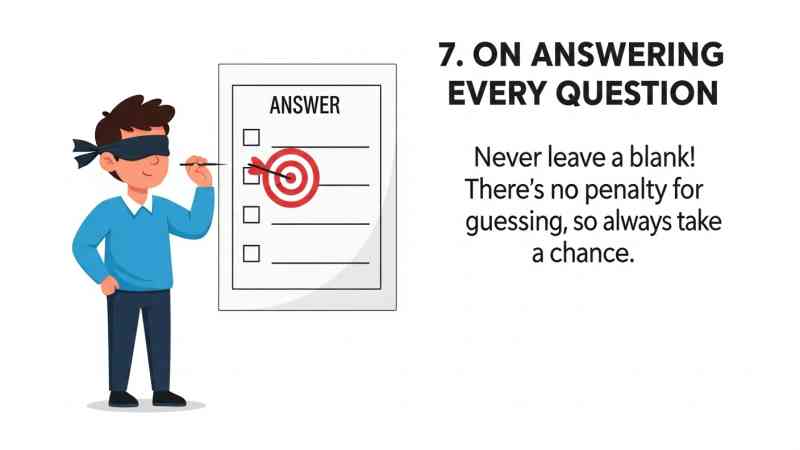
Use the fact that IELTS questions usually follow the order of the information in the passage. In most cases, once you’ve answered a question, you can move on to the next paragraph. This prevents you from re-reading the entire passage for each question. The IELTS-up guide reminds us: “Remember that the questions follow the order of the text in most cases”.
For example, if you answered Question 5 in paragraph 3, Question 6 is likely in paragraph 4 or later. So, after finishing Q5, start scanning from where you left off. If Question 5’s answer was at the very end of paragraph 3, begin looking for Q6 at the top of paragraph 4. This keeps your place in the text and maintains momentum. It also minimizes confusion and saves time.
8. Answer Every Question (No Penalty for Guessing)
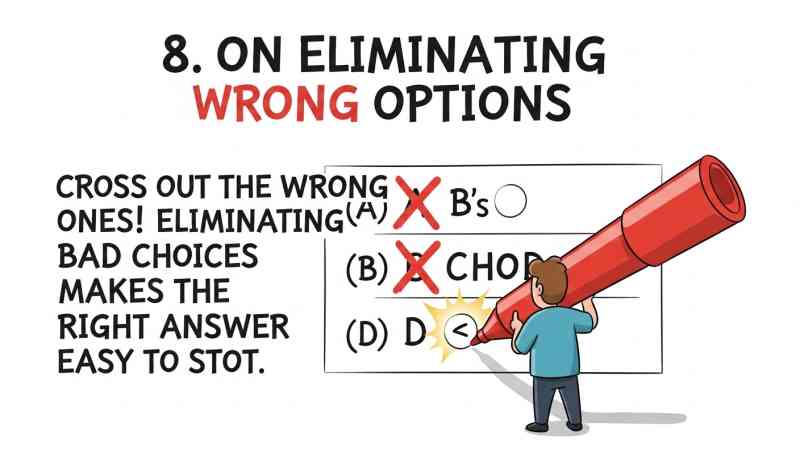
Never leave a blank! There is no negative marking in IELTS Reading, so guessing can only help. The IELTS-up tips emphasize: “Answer all the questions, even if you’re not sure… You don’t get a penalty for wrong answers”. Use any remaining time to fill in the blanks with your best guess.
Strategies for guessing:
- For multiple choice: eliminate obviously wrong options first, then guess from the remaining choices. This way your random guess has a higher chance of being correct.
- For True/False/Not Given (factual) statements: recall that Not Given means the passage says nothing on that point. If the statement clearly contradicts the text, mark it False. If it is explicitly confirmed by the text, mark it True. Otherwise, mark Not Given.
- For sentence or table completion: choose words exactly as they appear in the passage. Use the same form (plural/singular) as shown in the text and adhere to any word limit given (e.g., “No more than two words”).
Even a wild guess is better than a blank – you might get lucky. In the image above, the test-taker filled every bubble, likely guessing for any question left. That strategy has a chance; a blank definitely scores zero, so take the shot.
9. Eliminate Wrong Options
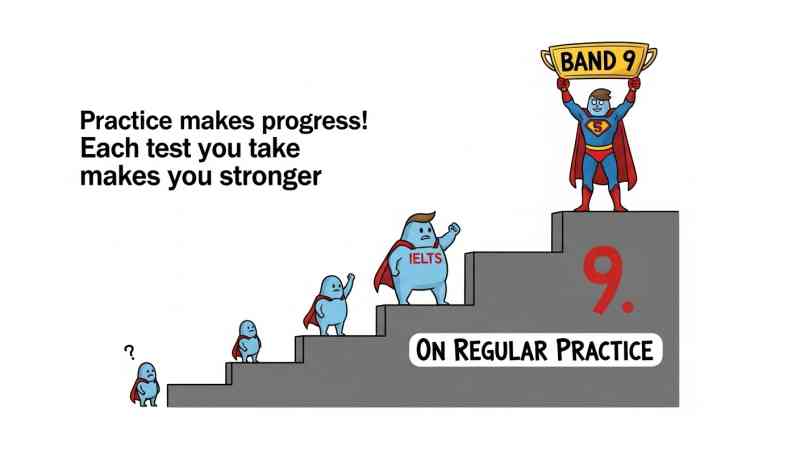
Crossing out wrong answers is a simple way to avoid mistakes and save time. If a question is multiple-choice or matching, and you identify an obviously incorrect choice, draw a line through it. The IELTS-up strategy illustrates this: “If you see an answer that you’re sure is wrong, cross it out. This way you won’t get confused and save your time.”
For example, if the passage never mentions a person or concept from one option, scratch it off your list. That leaves fewer choices to consider. It also helps when making a final guess – you won’t accidentally circle something you’ve already eliminated.
In the photo above, two of the options are crossed out because the student quickly recognized they couldn’t be correct. This reduces careless errors.
(Bonus for True/False/Not Given): Use logic here too. If a statement clearly contradicts the passage, mark it False. If it’s aligned with the passage, mark True. If neither applies (and there’s no info), mark Not Given.
10. Practice Regularly and Develop Your Strategy
Scoring Band 9 requires consistent practice. Use official IELTS practice tests and reputable resources (British Council, IDP, IELTS-up, etc.) to simulate exam conditions. As Edify’s #5 tip says, “Practice regularly… work on a variety of reading materials, including academic texts and articles from newspapers or magazines”.
Also, build your overall English skills:
- Vocabulary: The more words you know, the easier it is to understand passages. Edify specifically advises enhancing your vocabulary by learning new words in context. Try reading widely (news articles, journals, novels) and note any unfamiliar words.
- Reading Speed: Challenge yourself to read faster. Time yourself on reading newspaper articles or book chapters, then gradually increase speed while retaining understanding.
- Question Types: Familiarize yourself with all 11 IELTS reading question types. For instance, Edify’s list includes “diagram or flowchart completion”, so be ready to interpret visuals. The more you practice each type, the fewer surprises on test day.
Finally, adapt strategies to your style. Some test-takers prefer reading the entire text before answering; others jump between questions and text. Both can work. The IELTS-up guide notes there’s “no ultimate advice which technique fits you best” and recommends trying different methods. The key is consistency: pick an approach, practice it in mock exams, and refine it based on your results.
Final Thoughts
Following these IELTS reading tips for Band 9 – skimming and scanning skillfully, managing your time, underlining key information, eliminating wrong answers, and practicing extensively – will significantly boost your performance. Stay calm under time pressure and focus on comprehension. With diligent preparation and the strategies above, achieving a Band 9 in IELTS Reading is within your reach!

About the AuthorWelcome to TechIELTS. I’m Md. Jahangir Alam, an experienced engineer with over 15 years in electrical and automation systems. Alongside my engineering career, I’ve developed a strong interest in English language learning and IELTS preparation.
I hold a Duolingo English Test score of 135 (IELTS 7.5 equivalent) and am currently pursuing an M.Sc. in Cyber Security from Royal Holloway, University of London. I use my technical background to create clear, structured IELTS learning materials for students and professionals.
👉 Connect on LinkedIn
